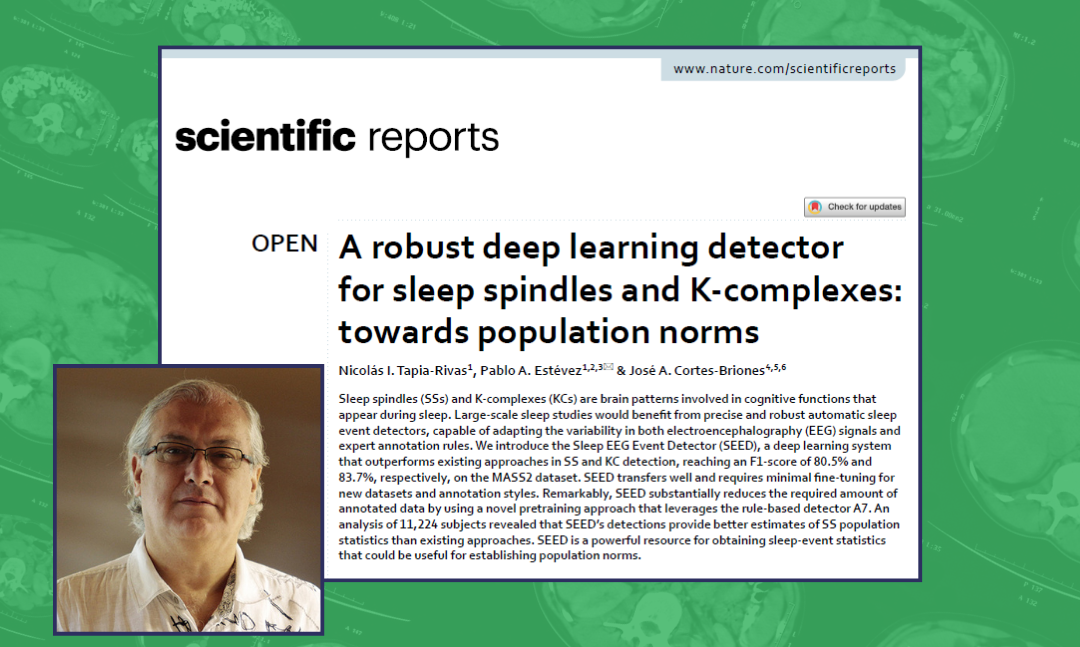Principal investigator of iHEALTH participated in a study on sleep using AI published in the journal Scientific Reports of Nature

Pablo Estévez, academic at the Department of Electrical Engineering of the University of Chile and Principal Investigator of iHEALTH, was director of the thesis of Nicolás Tapia, student of Civil Electrical Engineering and Master of Engineering Sciences, mention in Electrical, who, together with José Cortés-Briones, published the results in the journal Scientific Reports of Nature.
The research consisted of developing a model, through the use of deep learning, to detect patterns in sleep study electroencephalograms (EEG). The signals sought to be detected are sleep spindles and k-complexes, patterns of electrical brain activity that appear during sleep, which have been associated with various cognitive functions and could allow for the diagnosis of diseases.
The latter appear in the N2 stage of sleep, which represents almost half of the total duration. The detection of these events is useful for locating start and end moments in the record of interest, facilitating sleep research. Thanks to the use of artificial intelligence, through deep learning, the group managed to generate a model, Sleep EEG Event Detector (SEED), for this purpose.
It is expected that this tool can automatically generate k-complex and sleep spindle annotations on large publicly available sleep EEG data sets, thus contributing to the future development of the field. The potential use of this tool could contribute to the diagnosis of sleep disorders, as well as other diseases such as schizophrenia and epilepsy.
You can view the publication at the following link: https://www.nature.com/articles/s41598-023-50736-7
